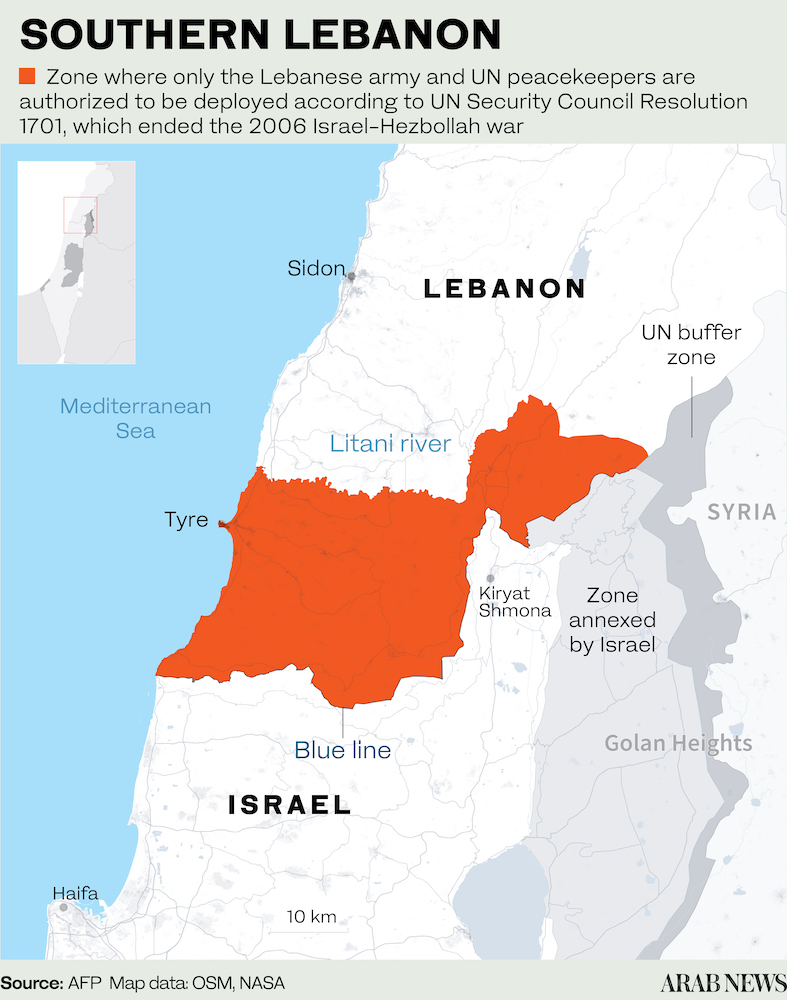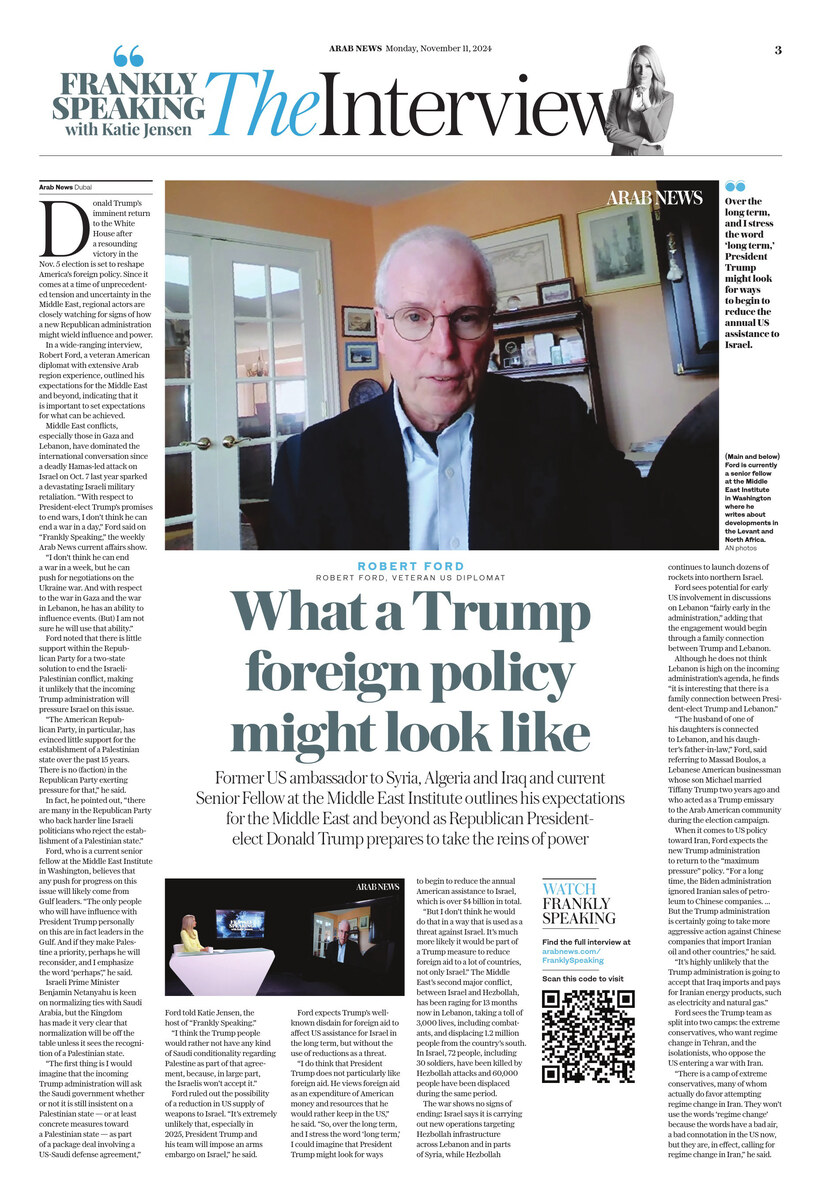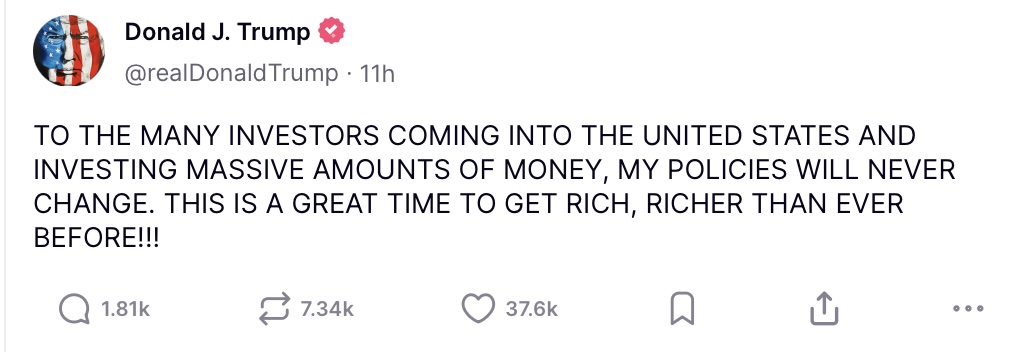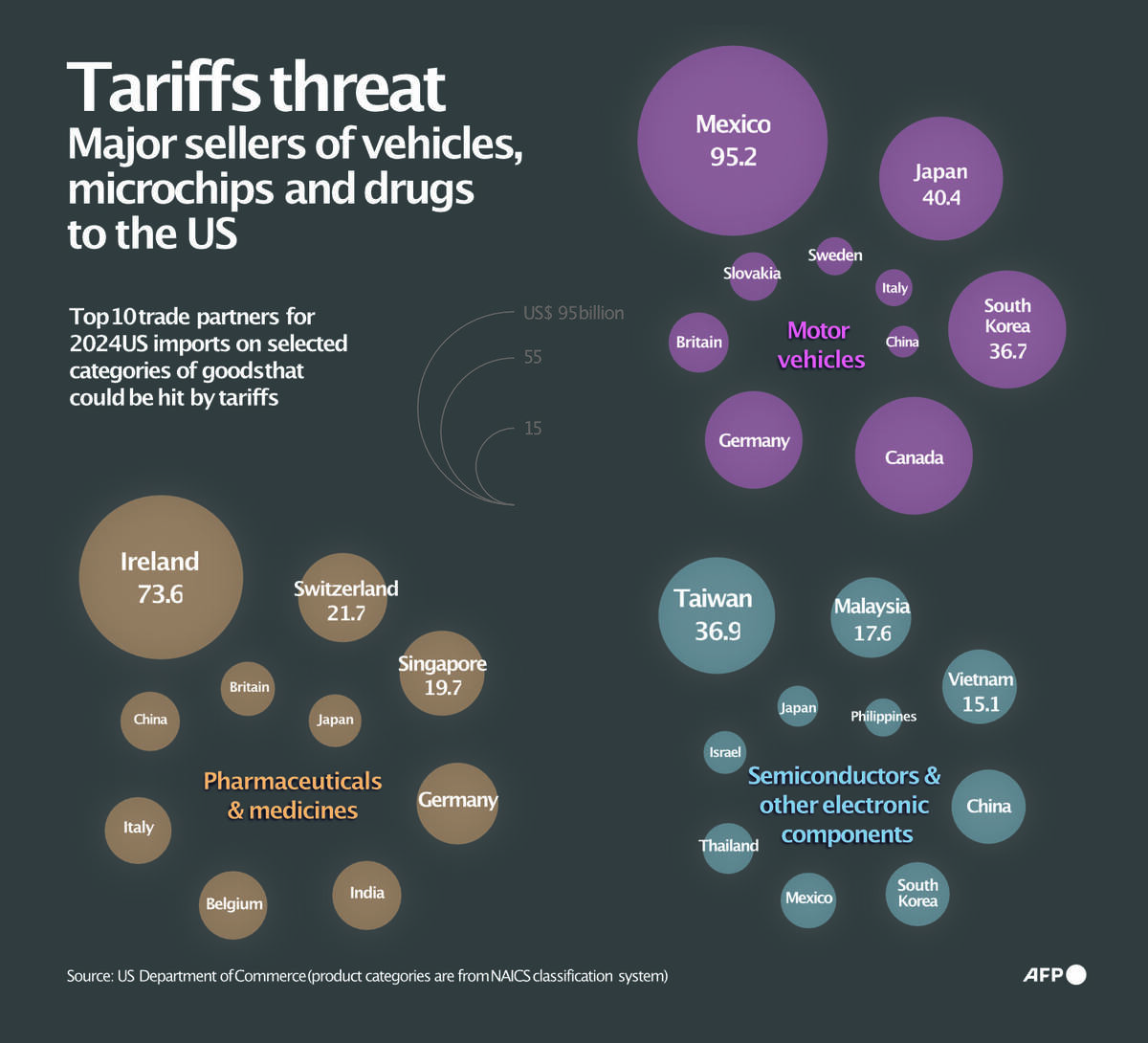DUBAI: Donald Trump’s imminent return to the White House after a resounding victory in the Nov. 5 election is set to reshape America’s foreign policy. Since it comes at a time of unprecedented tension and uncertainty in the Middle East, regional actors are closely watching for signs of how a new Republican administration might wield influence and power.
In a wide-ranging interview, Robert Ford, a veteran American diplomat with extensive Arab region experience, outlined his expectations for the Middle East and beyond, indicating that it is important to set expectations for what can be achieved.
Middle East conflicts, especially those in Gaza and Lebanon, have dominated the international conversation since a deadly Hamas-led attack on Israel on Oct. 7 last year sparked a devastating Israeli military retaliation. “With respect to President-elect Trump’s promises to end wars, I don’t think he can end a war in a day,” Ford said on “Frankly Speaking,” the weekly Arab News current affairs show.
“I don’t think he can end a war in a week, but he can push for negotiations on the Ukraine war. And with respect to the war in Gaza and the war in Lebanon, he has an ability to influence events. (But) I am not sure he will use that ability.”
Ford noted that there is little support within the Republican Party for a two-state solution to end the Israeli-Palestinian conflict, making it unlikely that the incoming Trump administration will pressure Israel on this issue.

Robert Ford, a veteran American diplomat with extensive Middle East experience, outlined to Frankly Speaking host Katie Jensen his expectations for the Middle East and beyond following the election of Donald Trump as US President. (AN Photo)
“The American Republican Party, in particular, has evinced little support for the establishment of a Palestinian state over the past 15 years. There is no (faction) in the Republican Party exerting pressure for that,” he said.
In fact, he pointed out, “there are many in the Republican Party who back harder line Israeli politicians who reject the establishment of a Palestinian state.”
In the current political climate, when there is strong Arab-Islamic unity over the Israeli invasion of Gaza and the consequent high civilian death toll, recognition of a Palestinian state has become a matter of priority for regional actors. Saudi Arabia has been leading efforts to boost international cooperation to reach a two-state solution. In September, the Kingdom’s government formed a global alliance to lead efforts aimed at establishing a Palestinian state.
Ford, who is a current senior fellow at the Middle East Institute in Washington, believes that any push for progress on this issue will likely come from Gulf leaders. “The only people who will have influence with President Trump personally on this are in fact leaders in the Gulf. And if they make Palestine a priority, perhaps he will reconsider, and I emphasize the word ‘perhaps’,” he said.
Israeli Prime Minister Benjamin Netanyahu is keen on normalizing ties with Saudi Arabia, but the Kingdom has made it very clear that normalization will be off the table unless it sees the recognition of a Palestinian state.
“The first thing is I would imagine that the incoming Trump administration will ask the Saudi government whether or not it is still insistent on a Palestinian state — or at least concrete measures toward a Palestinian state — as part of a package deal involving a US-Saudi defense agreement,” Ford told Katie Jensen, the host of “Frankly Speaking.”
“I think the Trump people would rather not have any kind of Saudi conditionality regarding Palestine as part of that agreement, because, in large part, the Israelis won’t accept it.”
The US has long been the largest arms supplier to Israel. Last year, after Israel began its assault on Hamas and other Palestinian militant groups, it asked the US for $10 billion in emergency military aid, according to a New York Times report. The Council on Foreign Relations, an independent US-based think tank, estimates that the US has provided at least $12.5 billion in military aid to Israel since last October.
Trump has reportedly told Netanyahu that he wants the war in Gaza, which so far has claimed more than 43,400 Palestinian lives, most of them civilians, to finish by the time he takes office in January. Does that mean a Trump administration will put pressure on the Israeli leader to wrap up the war?

Trump waves as he walks with former first lady Melania Trump at an election night watch party at the Palm Beach Convention Center, Wednesday, Nov. 6. (AP)
Ford ruled out the possibility of a reduction in US supply of weapons to Israel. “It’s extremely unlikely that, especially in 2025, President Trump and his team will impose an arms embargo on Israel,” he said.
Ford expects Trump’s well-known disdain for foreign aid to affect US assistance for Israel in the long term, but without the use of reductions as a threat.
“I do think that President Trump does not particularly like foreign aid. He views foreign aid as an expenditure of American money and resources that he would rather keep in the US,” he said.
“So, over the long term, and I stress the word ‘long term,’ I could imagine that President Trump might look for ways to begin to reduce the annual American assistance to Israel, which is over $4 billion in total.
“But I don’t think he would do that in a way that is used as a threat against Israel. It’s much more likely it would be part of a Trump measure to reduce foreign aid to a lot of countries, not only Israel.”
The Middle East’s second major conflict, between Israel and Hezbollah, has been raging for 13 months now in Lebanon, taking a toll of 3,000 lives, including combatants, and displacing 1.2 million people from the country’s south. In Israel, 72 people, including 30 soldiers, have been killed by Hezbollah attacks and 60,000 people have been displaced during the same period.
The war shows no signs of ending: Israel says it is carrying out new operations targeting Hezbollah infrastructure across Lebanon and in parts of Syria, while Hezbollah continues to launch dozens of rockets into northern Israel.
Ford sees potential for early US involvement in discussions on Lebanon “fairly early in the administration,” adding that the engagement would begin through a family connection between Trump and Lebanon.
Although he does not think Lebanon is high on the incoming administration’s agenda, he finds “it is interesting that there is a family connection between President-elect Trump and Lebanon.”
“The husband of one of his daughters is connected to Lebanon, and his daughter’s father-in-law,” Ford, said referring to Massad Boulos, a Lebanese-American businessman whose son Michael married Tiffany Trump two years ago and who acted as a Trump emissary to the Arab American community during the election campaign.
“Because Trump operates very much with family, and we saw that in the first administration — first Trump administration — supposedly this Lebanese American gentleman, businessman, may be involved in some discussions.”

Ford also noted that “Israeli success against Hezbollah and against Iran has made the Hezbollah and Iranian side more flexible in their positions,” adding that “it might be easier to reach an agreement on ending the war in Lebanon than, for example, it will be in Gaza.”
Moving on to Syria, Ford, who served as the US ambassador in Damascus from 2011 to 2014, said while the country “is very low on President Trump’s priority list,” Trump might pull the remaining American troops out.
The US is reported to have a military presence of approximately 900 personnel in eastern Syria and 2,500 in Iraq as part of the international coalition against Daesh. The troops in Syria serve various purposes: helping prevent the resurgence of Daesh, supporting Washington’s Kurdish allies and containing the influence of Iran and Russia — both of which also have a military presence in Syria.
“I think it more likely than not that President Trump will withdraw the remaining American forces in Syria, which numbers somewhere around 1,000,” Ford said, adding that the president-elect might also “withdraw the American forces that are now in Iraq as part of the international coalition against Daesh.”
He added that Trump “may, perhaps, accept a bilateral relationship, military relationship with Iraq afterward,” but Syria remains “low on his priority list.”
Ford also thinks it is “impossible” for Syrian President Bashar Assad to abandon his alliance with Iran, against which the new Trump administration is expected to reapply “maximum pressure.”
“The Iranians really saved him (Assad) from the Syrian armed opposition in 2013 and 2014 and 2015,” he said. “There is no alternative for President Assad to a continued close military relationship with Iran.”
He added: “I’m sure President Assad is uncomfortable with some of the things which Iran is doing in Syria and which are triggering substantial Israeli airstrikes. But to abandon Iran? No, that’s difficult for me to imagine.”
He said to expect the Syrian leader to trust Gulf Arab governments more than he would trust the Iranians would be “a big ask.”
When it comes to US policy toward Iran, Ford expects the new Trump administration to return to the “maximum pressure” policy. “For a long time, the Biden administration ignored Iranian sales of petroleum to Chinese companies. ... But the Trump administration is certainly going to take more aggressive action against Chinese companies that import Iranian oil and other countries,” he said.

Demonstration by the families of the hostages taken captive in the Gaza Strip by Hamas militants during the Oct. 7 attacks, calling for action to release the hostages, outside the Israeli Prime Minister's residence in Azza (Gaza) Street in central Jerusalem last month. (AFP)
“It’s highly unlikely that the Trump administration is going to accept that Iraq imports and pays for Iranian energy products, such as electricity and natural gas.”
Ford sees the Trump team as split into two camps: the extreme conservatives, who want regime change in Tehran, and the isolationists, who oppose the US entering a war with Iran.
“There is a camp of extreme conservatives, many of whom actually do favor attempting regime change in Iran. They won’t use the words ‘regime change’ because the words have a bad air, a bad connotation in the US now, but they are, in effect, calling for regime change in Iran,” he said.
“I should hasten to add that they don’t know what would replace the Islamic Republic in terms of a government.”
According to Ford, the second camp “is a more, in some ways, isolationist camp. J.D. Vance, the vice president-elect, would be in this camp; so would American media personality Tucker Carlson, who’s a very strong Trump supporter and who has influence with Trump.
“They do not want to send in the American military into a new war in the Middle East, and they don’t advocate for a war against Iran.”
Ford’s own sense of Trump, from his first administration and from recent statements, is that “he, too, is very cautious about sending the US military to fight Iran.”
Similarly, the Trump team is divided when it comes to the Ukraine war, according to Ford, so it will take some time “for Trump himself to make a definitive policy decision.”
“There are some, such as former Secretary of State Michael Pompeo, who are very firm supporters of the Ukrainian effort against Russia. Others, like Vance, are not.”
The second reality regarding Ukraine, Ford said, is that Trump himself is skeptical about the value of NATO, or the North Atlantic Treaty Organization.
“I cannot imagine that he will be enthusiastic in any way about Ukraine joining NATO. That will at least address one of Moscow’s big concerns,” he said. “The third point I would make: The Americans may propose ideas. But the American ideas about, for example, an autonomous region in eastern Ukraine or freezing the battle lines.”
He added: “I’m not sure that (Ukrainian President Volodymyr) Zelensky is going to be enthusiastic about accepting them. I’m not sure the Europeans will be enthusiastic about accepting them. And therefore, again, the negotiation process could take a long time.”
On who might advise Trump on Middle East policy after he moves into the White House in January, now that Jared Kushner, the former senior adviser and Trump’s son-in-law, has announced he does not plan to join the administration this time, Ford said Trump places a very high regard on loyalty to him personally.
“People such as Richard Grenell, who was his acting director of national intelligence, and Pompeo pass that kind of loyalty test,” he said. (On Sunday, Trump announced he would not ask Pompeo or former primary opponent Nikki Haley to join his second administration.)
“Trump’s agenda this time is massive change in the Washington federal departments among the employees. And he will trust loyalists … to implement those deep changes — the firing of thousands of employees,” Ford said. “We will see a very different kind of Trump foreign policy establishment by the time we arrive in the year 2026-2027.”
































